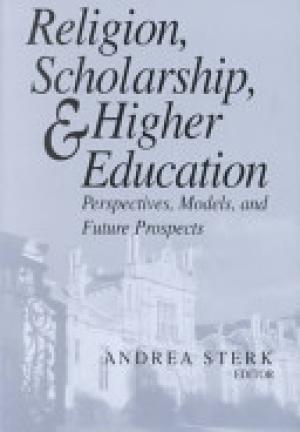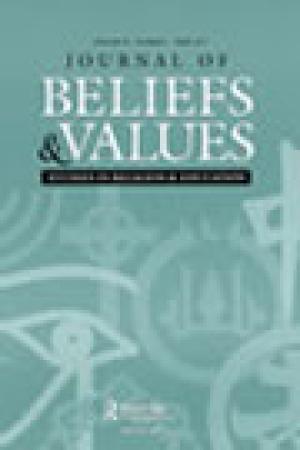Resources

Examines how the higher education sector in Britain has responded to changes due to religious diversity. Takes particular account of the perspectives of chaplains in higher education, and also considers the perspectives of religious, student-run, and academic organizations concerned with religion in universities. Explores the role that religion plays in shaping a new generation of British Hindus, Muslims, and Sikhs, and examines issues such as the staffing of chaplaincies, religious dietary needs, and equal opportunity policies. (From the Publisher)
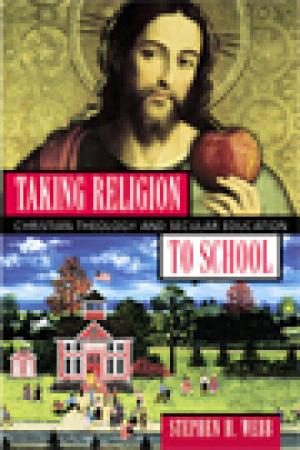
In the modern university, religion is often taken to school--primarily in the sense of being critiqued, disciplined, and domesticated. In this provocative book, Stephen Webb steps into the middle of current controversies about the place of religion in secular high schools and colleges. Speaking explicitly as a Christian theologian, but also as one who accepts the reality of religious pluralism, Webb argues that the teaching of religion is itself a religious activity, that teachers of religion should not disguise their own faiths in the classroom, and that high schools and universities should allow more--not less--space for religious voices. Taking Religion to School, rather than rehearse tired debates, bursts with creative insight and strategic reframings of the crucial questions about religion and pedagogy. Webb's penetrating analysis and vivid autobiographical reflections will benefit professors of religious studies, high school teachers of religion, students, seminary-and university-based theologians, and all others concerned with the many points of contention over religious education in our day. (From the Publisher)
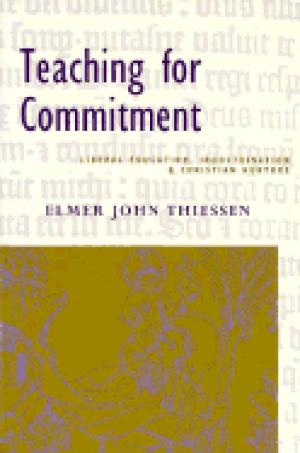
This book covers the fields of religion, philosophy, epistemology, ethics, and education. The very practical nature of the problem examined, and Thiessen's straightforward and non-technical presentation, will be of interest to parochial and public school boards, teachers, and parents, as well as religious groups, educationalists, and philosophers of education. (From the Publisher)
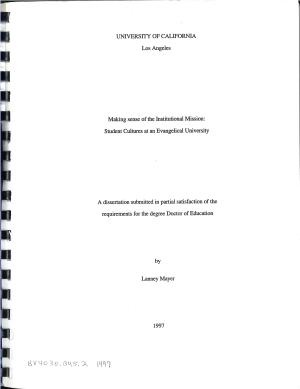
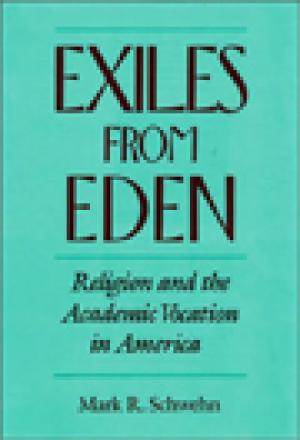
Exiles From Eden sounds a call to the American academic community to begin seeking a solution to the many problems facing higher education today by rediscovering a proper sense of its vocation. Schwehn argues that the modern university has forgotten its spiritual foundations and that it needs to reappropriate those foundations before it can creatively and responsibly reform itself. The first part of the book offers a critical examination of the ethos of the modern academy, especially its understanding of knowledge, teaching, and learning. Schwehn then formulates a description of the "new cultural context" within which the world of higher learning is presently situated. Finally, he develops a view of knowledge and inquiry that is linked essentially to character, friendship, and community. In the process, he demonstrates that the practice of certain spiritual virtues is and always has been essential to the process of genuine learning - even within the secular academy. Schwehn critiques philosophies of higher education he sees as misguided, from Weber and Henry Adams to Derek Bok, Allan Bloom, and William G. Perry, Jr., drawing out valid insights, while always showing the theological underpinnings of the so-called secular thinkers. He emphasizes the importance of community, drawing on both the secular communitarian theory of Richard Rorty and that of the Christian theorist Parker Palmer. Finally, he outlines his own prescription for a classroom-centered spiritual community of scholars. Exiles From Eden examines the relationship between religion and higher learning in a way that is at once historical and philosophical and that is both critical and constructive. It calls for nothing less than a reunion of the intellectual, the moral, and the spiritual virtues within the world of higher education in America. It will engage all those concerned with higher education in America today: faculty, students, parents, alumni, administrators, trustees, and foundation officers. (From the Publisher)
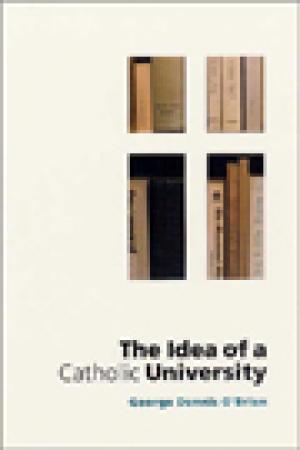
George Bernard Shaw thought that a Catholic university was a contradiction in terms--"university" represents intellectual freedom and "Catholic" represents dogmatic belief. Scholars, university administrators, and even the Vatican have staked out positions debating Shaw's observation. In this refreshing book, George Dennis O'Brien argues that contradiction arises both from the secular university's limited concept of academic freedom and the church's defective notion of dogma. Truth is a central concept for both university and church, and O'Brien's book is built on the idea that there are different areas of truth--scientific, artistic, and religious--each with its own proper warrant and "method." In this light, he argues that one can reverse Shaw's comparison and uncover academic dogma and Christian freedom, university "infallibility" and dogmatic "fallibility." Drawing on theology and the history of philosophy, O'Brien shows how religious truth relates to the work of a Catholic university. He then turns to the current controversies over Pope John Paul II's recent statement, Ex Corde Ecclesiae, which seeks to make Catholic universities conform to the church's official teaching office. O'Brien rejects the conventional "institutional-juridical" model used by the Vatican as improper both to faith and academic freedom. He argues for a "sacramental" model, one that respects the different kinds of "truth"--thus preserving the integrity of both church and university while making their combination in a Catholic university not only possible but desirable. O'Brien concludes with a practical consideration of how the ideal Catholic university might be expressed in the actual life of the contemporary curriculum and extracurriculum. For anyone concerned about the place of religion in higher education, The Idea of a Catholic University will be essential reading. (From the Publisher)
Of all America's religious traditions, the author writes, evangelical Protestantism, at least in the twentieth-century conservative forms, has long ranked "dead last in intellectual stature." Now evangelical thinkers are trying to revitalize their tradition. Can they turn an intellectual backwater into an intellectual beacon?
